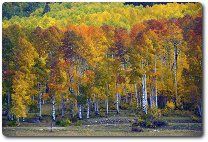Gerard Manley Hopkins, selected poems Contents
- As Kingfishers Catch Fire
- Binsey Poplars
- The Blessed Virgin Mary Compared to the Air We Breathe
- Carrion Comfort
- Duns Scotus' Oxford
- God's Grandeur
- Harry Ploughman
- Henry Purcell
- Hurrahing in Harvest
- Inversnaid
- I Wake and Feel the Fell of Dark
- Synopsis of I Wake and Feel the Fell of Dark
- Commentary on I Wake and Feel the Fell of Dark
- Language and tone in I Wake and Feel the Fell of Dark
- Structure and versification in I Wake and Feel the Fell of Dark
- Imagery and symbolism in I Wake and Feel the Fell of Dark
- Themes in I Wake and Feel the Fell of Dark
- The Leaden Echo and the Golden Echo
- Synopsis of The Leaden Echo and the Golden Echo
- Commentary on The Leaden Echo and the Golden Echo
- Language and tone in The Leaden Echo and the Golden Echo
- Structure and versification in The Leaden Echo and the Golden Echo
- Imagery and symbolism in The Leaden Echo and the Golden Echo
- Themes in The Leaden Echo and the Golden Echo
- The May Magnificat
- My Own Heart, Let Me Have More Pity On
- Synopsis of My Own Heart, Let Me Have More Pity On
- Commentary on My Own Heart, Let Me Have More Pity On
- Language and tone in My Own Heart, Let Me Have More Pity On
- Structure and versification in My Own Heart, Let Me Have More Pity On
- Imagery and symbolism in My Own Heart, Let Me Have More Pity On
- Themes in My Own Heart, Let Me Have More Pity On
- No Worst, There is None
- Patience, Hard Thing!
- Pied Beauty
- The Sea and the Skylark
- Spelt from Sibyl's Leaves
- Spring
- Spring and Fall
- St. Alphonsus Rodriguez
- The Starlight Night
- That Nature is a Heraclitean Fire and of the Comfort of the Resurrection
- Synopsis of That Nature is a Heraclitean Fire
- Commentary on That Nature is a Heraclitean Fire
- Language and tone in That Nature is a Heraclitean Fire
- Structure and versification in That Nature is a Heraclitean Fire
- Imagery and symbolism in That Nature is a Heraclitean Fire
- Themes in That Nature is a Heraclitean Fire
- Thou Art Indeed Just, Lord
- Tom's Garland
- To Seem the Stranger
- To What Serves Mortal Beauty
- The Windhover
- The Wreck of the Deutschland
- Beauty and its purpose
- The beauty, variety and uniqueness of nature
- Christ's beauty
- Conservation and renewal of nature
- God's sovereignty
- The grace of ordinary life
- Mary as a channel of grace
- Nature as God's book
- Night, the dark night of the soul
- Serving God
- Suffering and faith
- The temptation to despair
- The ugliness of modern life
- Understanding evil in a world God has made
Synopsis of Binsey Poplars
 In March 1879, whilst stationed in Oxford for parish duties, Hopkins wrote to his ex-schoolteacher E. W. Dixon, ‘I have been up to Godstow this afternoon. I am sorry to say the aspens that line the river are every one felled.' Godstow is a few miles to the north of Oxford along the river, whilst Binsey is between the two places. Aspens are the sort of poplars whose leaves turn and seem to shift colour as the colour differs on upper and lower surfaces of leaves. This poem was a result of the sad sight. More on the destruction of nature?
In March 1879, whilst stationed in Oxford for parish duties, Hopkins wrote to his ex-schoolteacher E. W. Dixon, ‘I have been up to Godstow this afternoon. I am sorry to say the aspens that line the river are every one felled.' Godstow is a few miles to the north of Oxford along the river, whilst Binsey is between the two places. Aspens are the sort of poplars whose leaves turn and seem to shift colour as the colour differs on upper and lower surfaces of leaves. This poem was a result of the sad sight. More on the destruction of nature?
More on the destruction of nature: Many people are deeply saddened at the destruction of nature, especially when a particular place held dear has been torn down for a road, or houses, or for no obvious reason at all. Artists are particularly sensitive to this. Almost a hundred years before, another English poet who loved the English countryside, William Cowper, wrote a poem, ‘The Poplar Fields', grieving similarly. Poplars are striking trees, as anyone who has seen some of the French Impressionists' depiction of them will testify.
Area with its own church, served by a priest who has the spiritual care of all those living within it.
